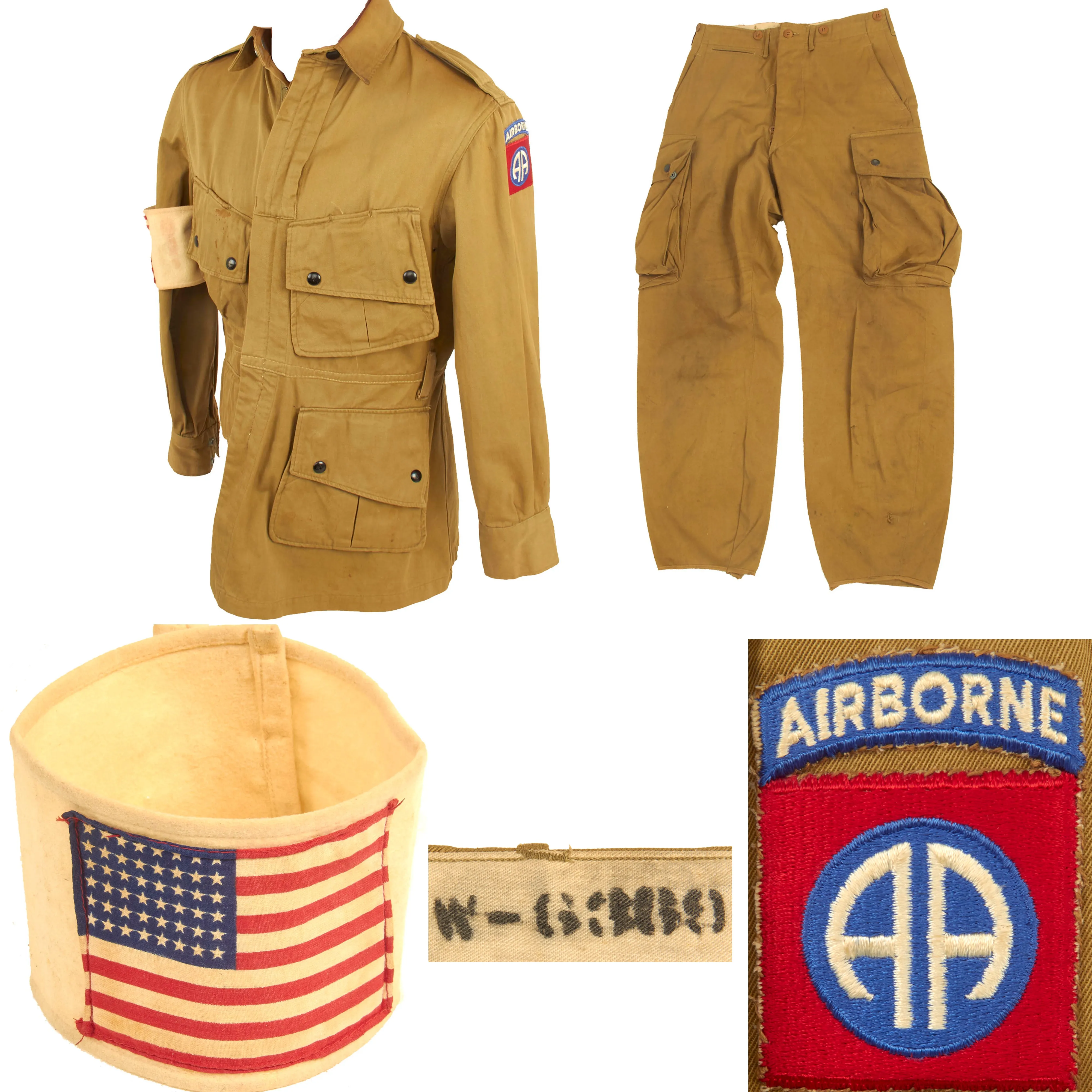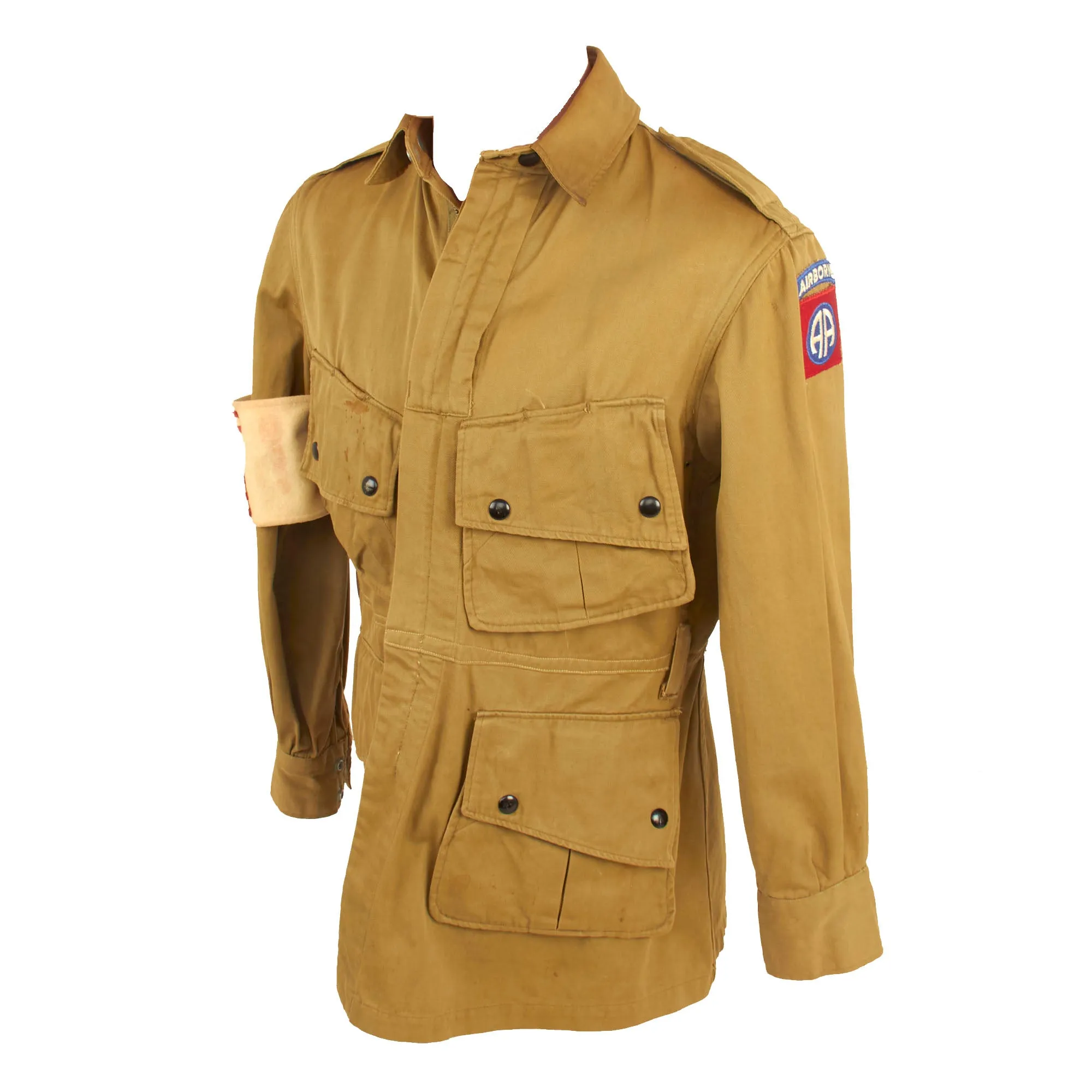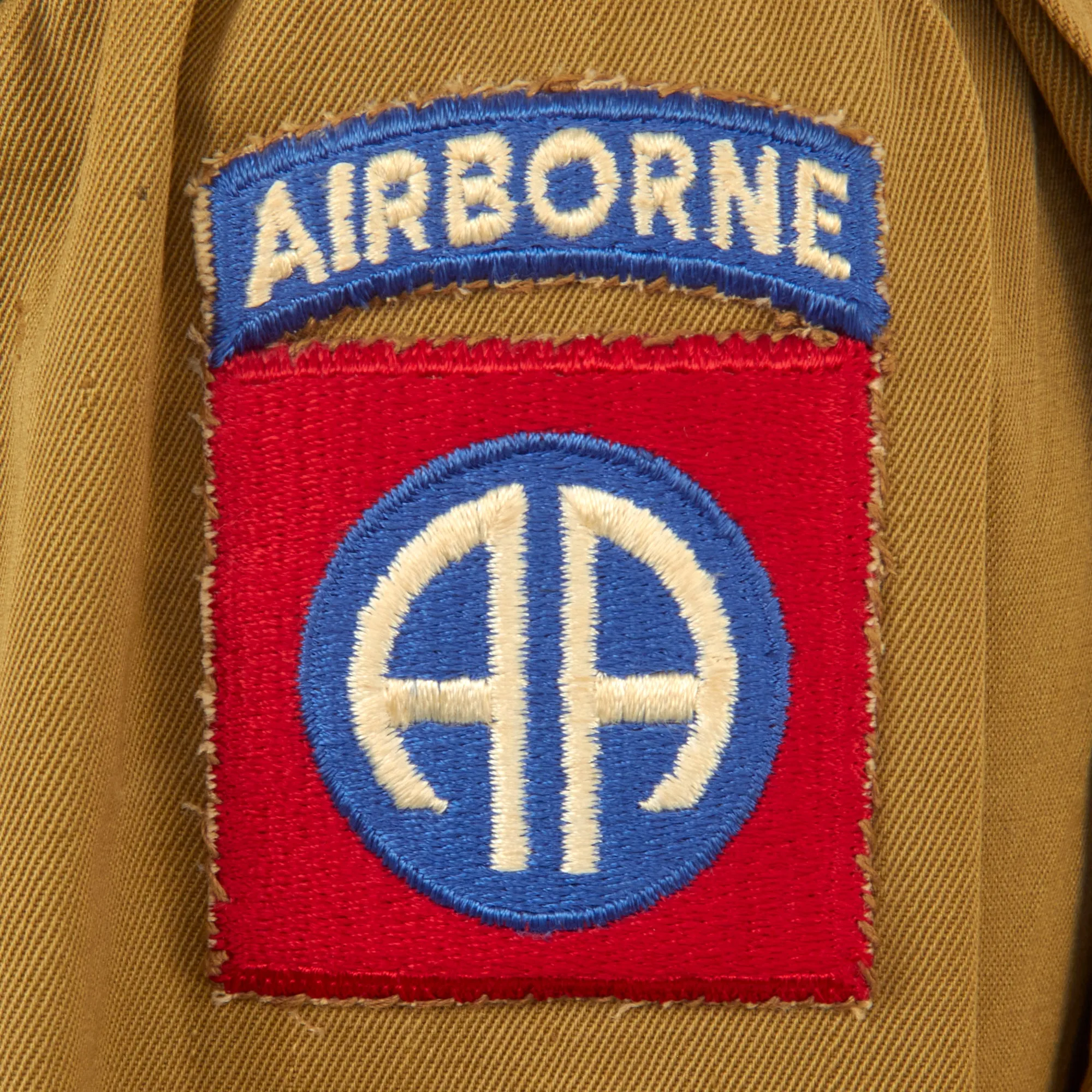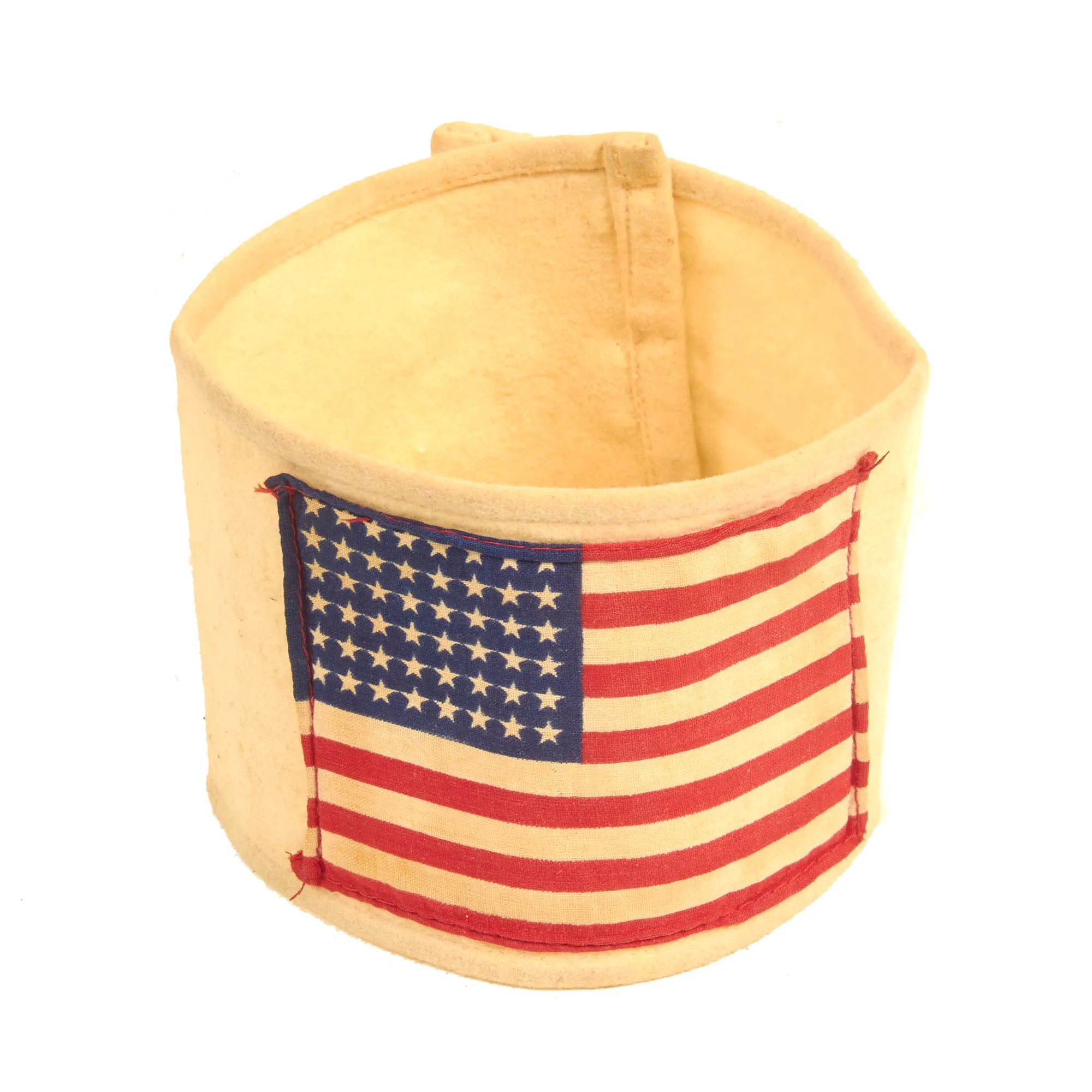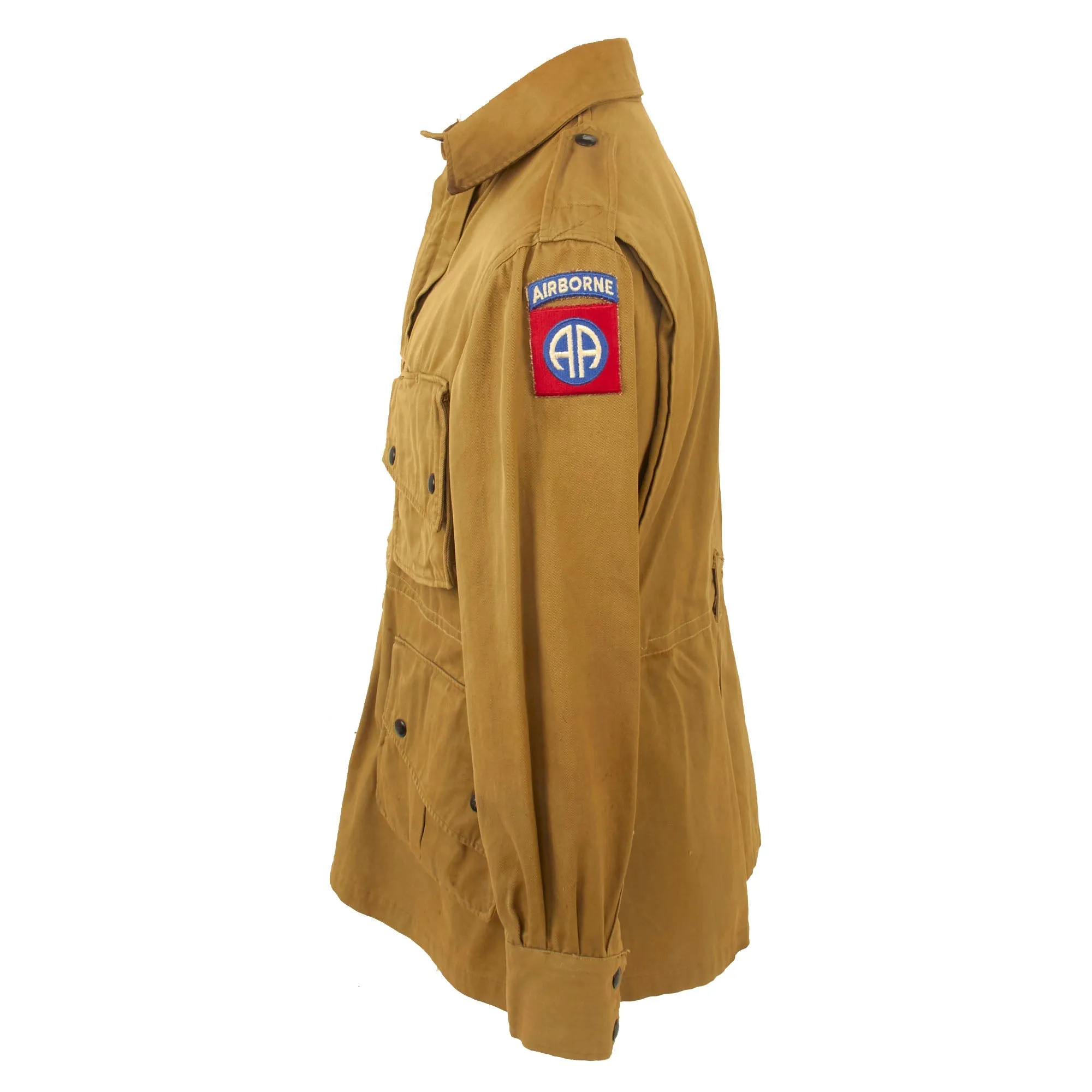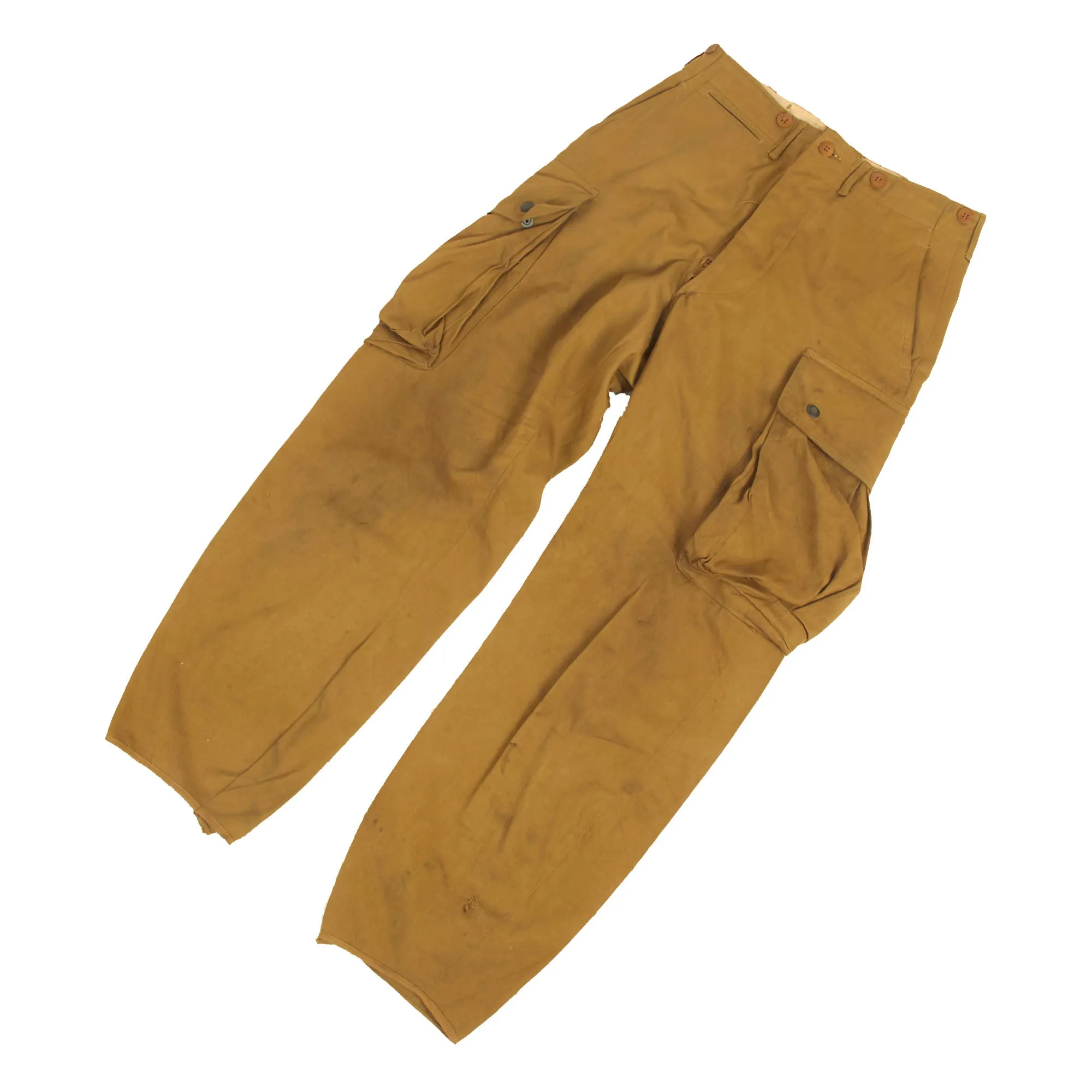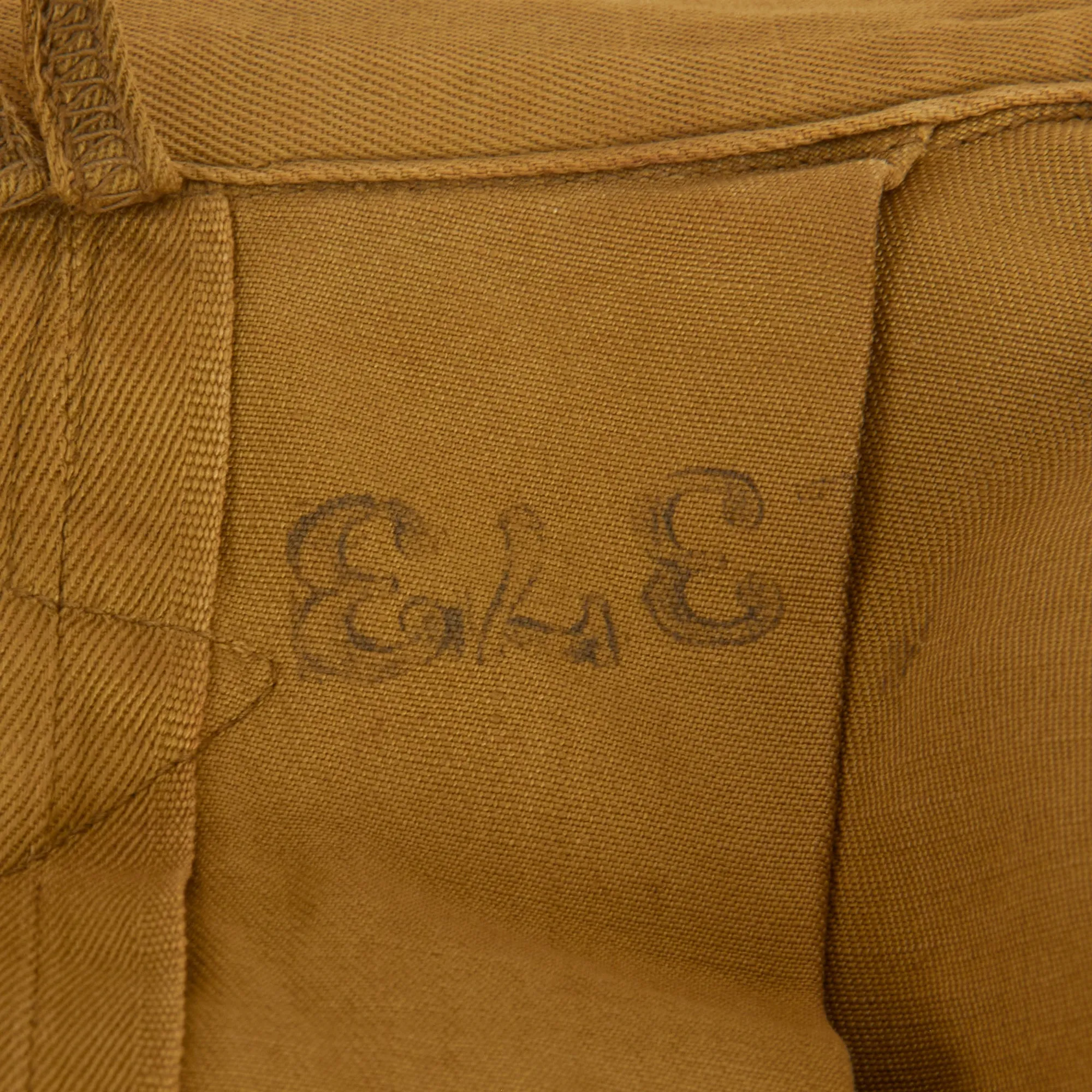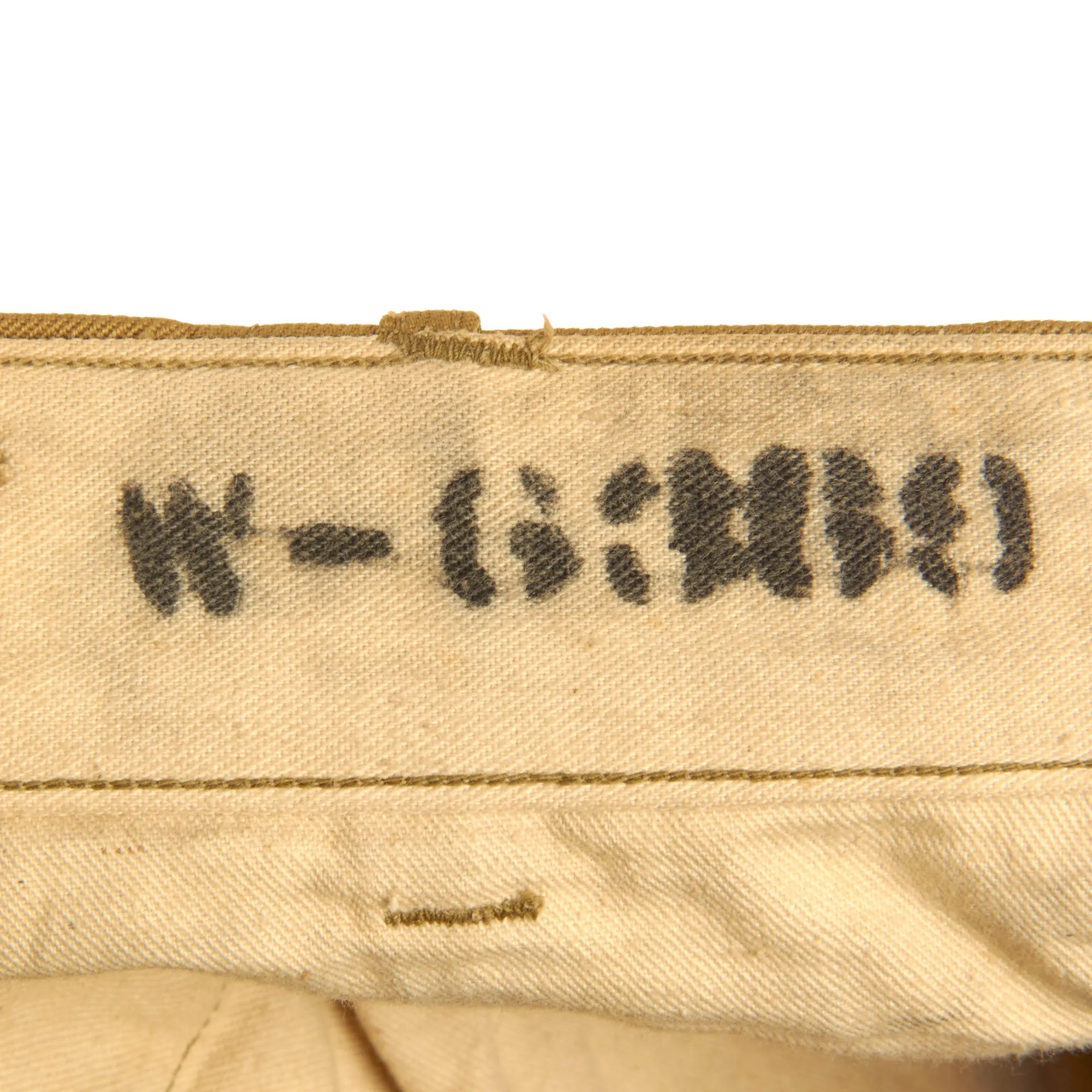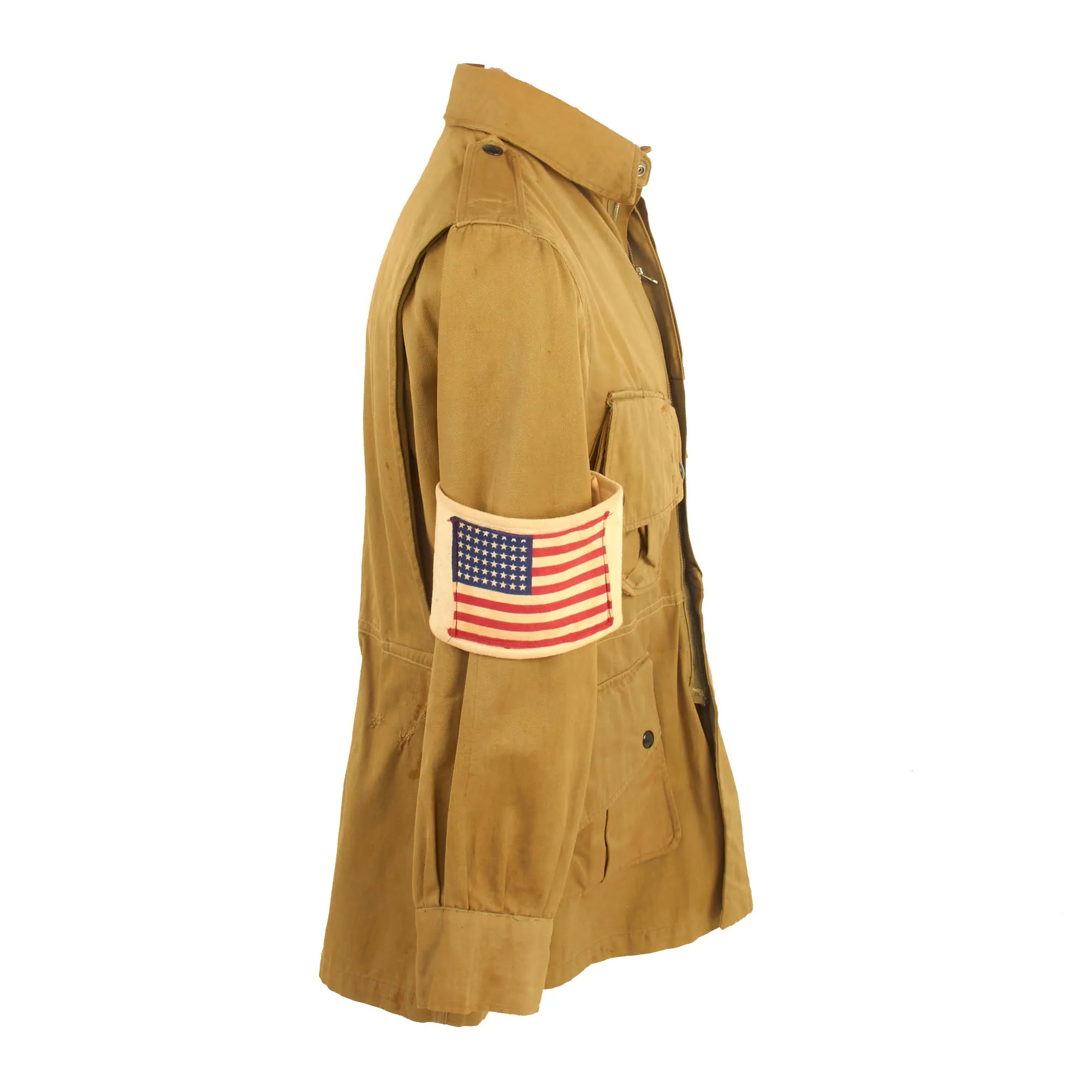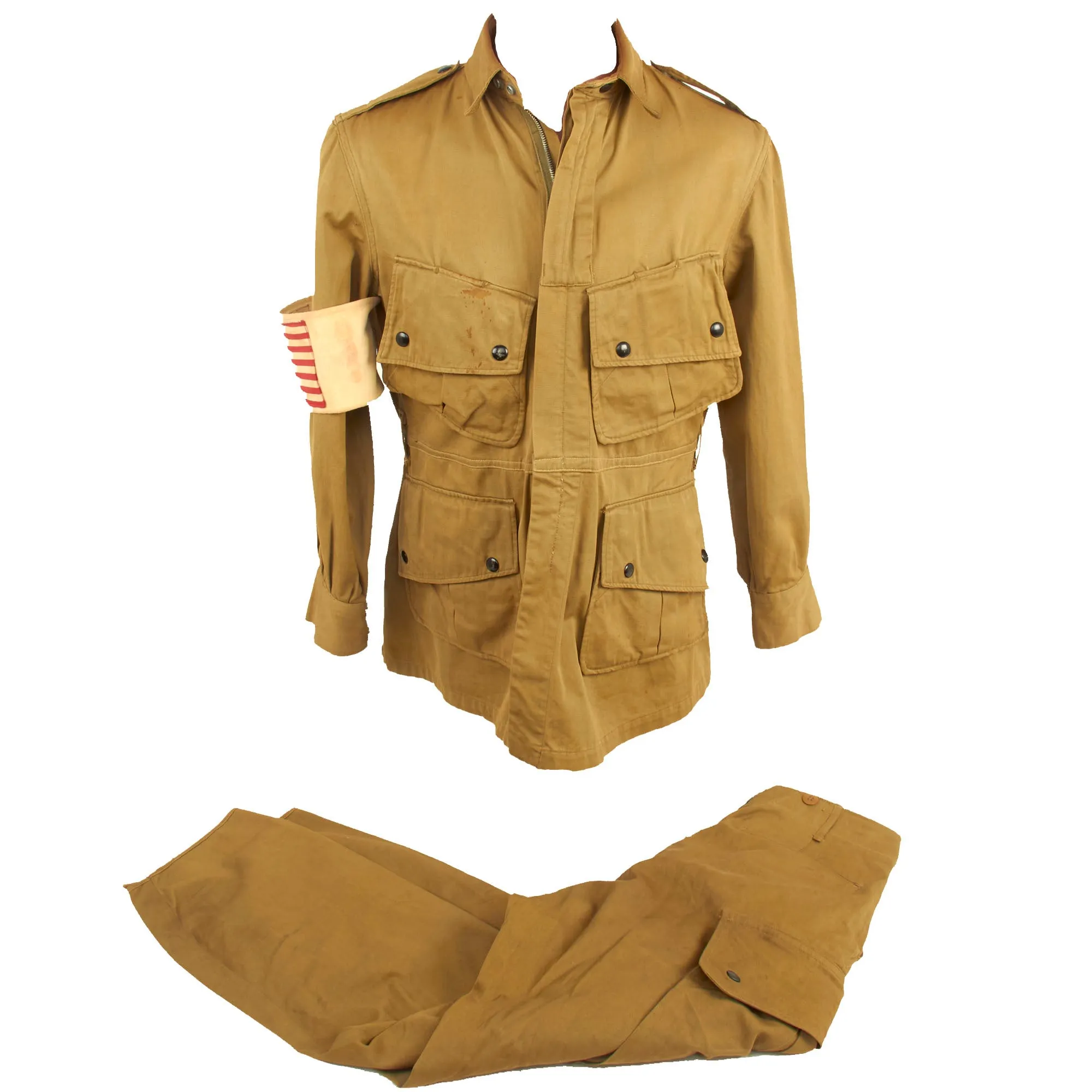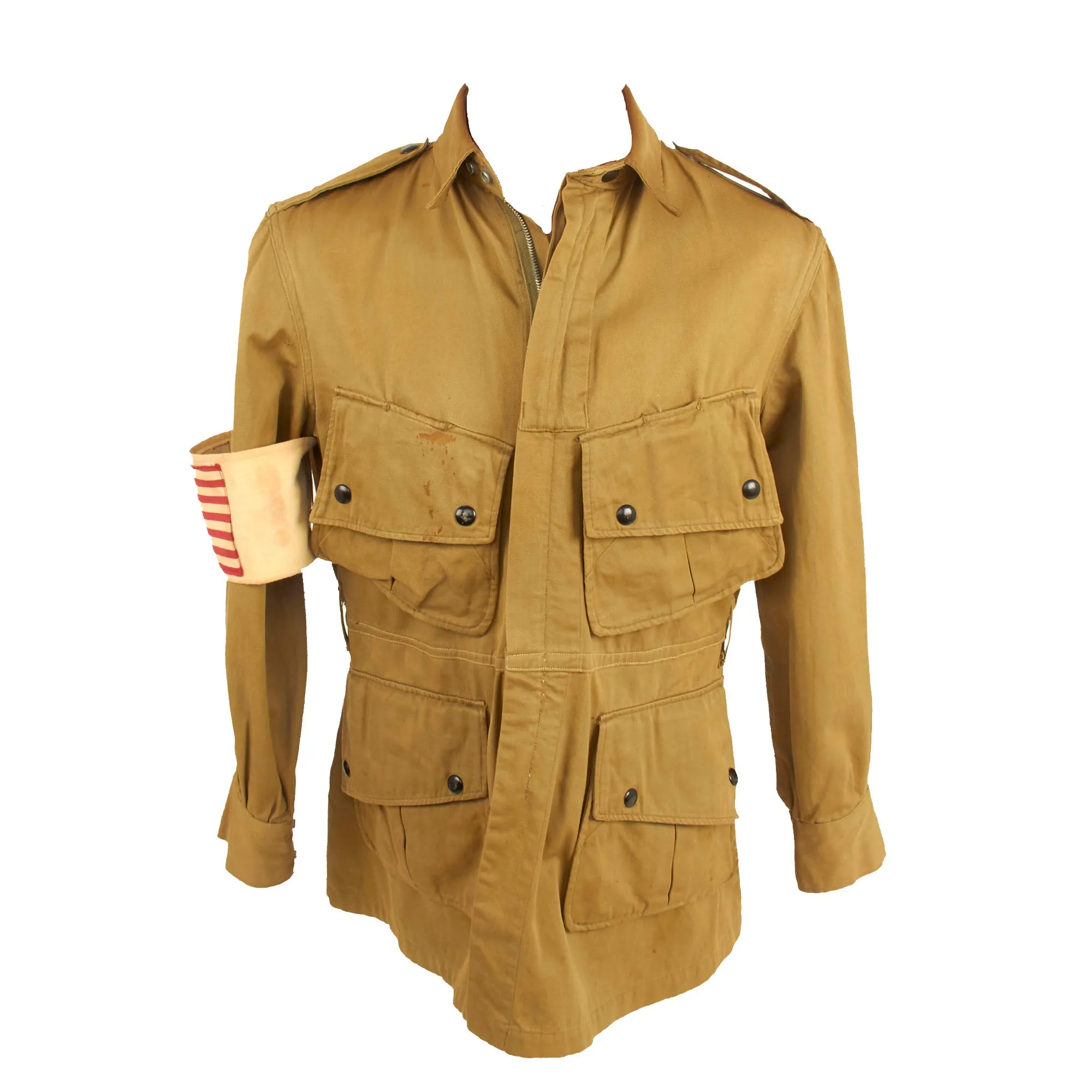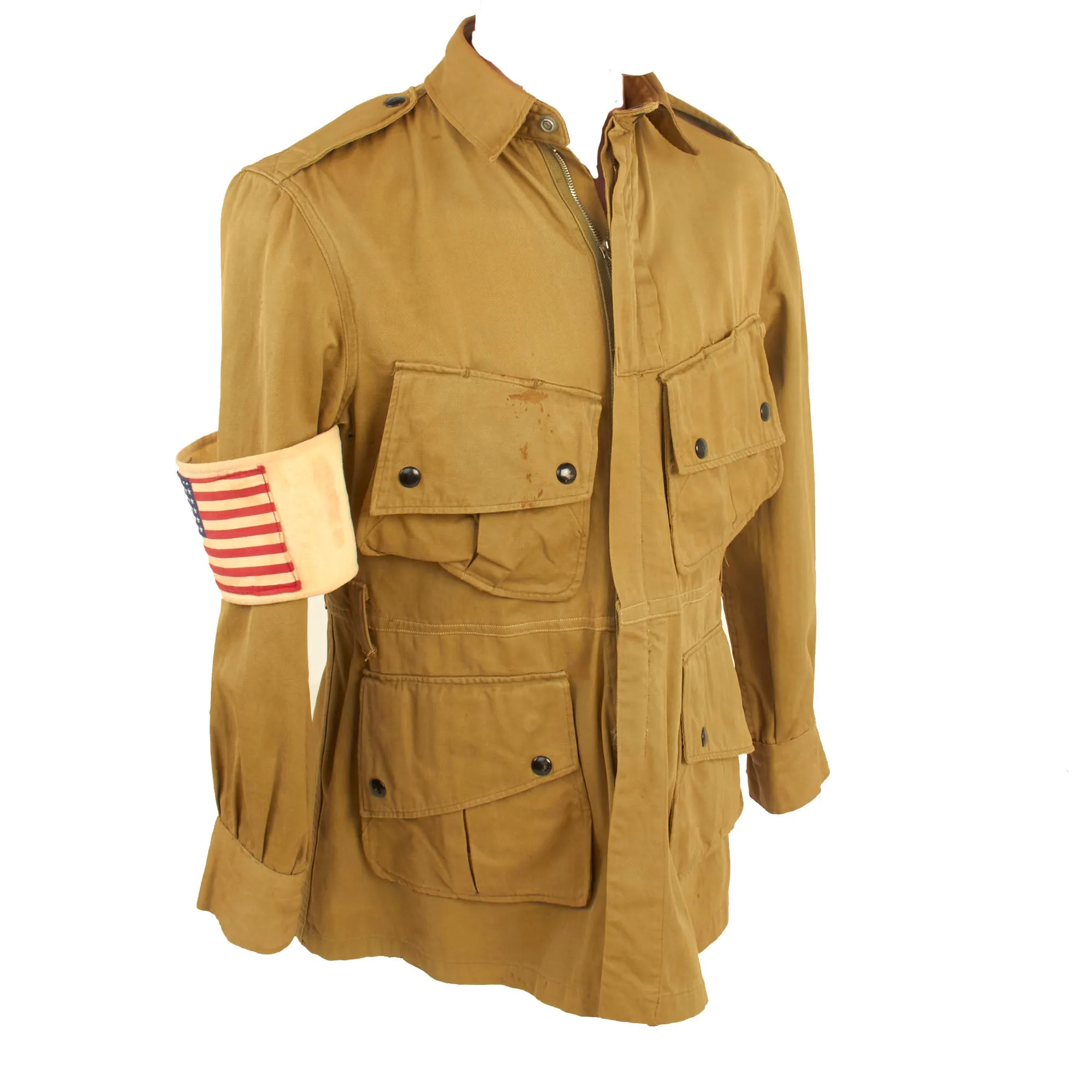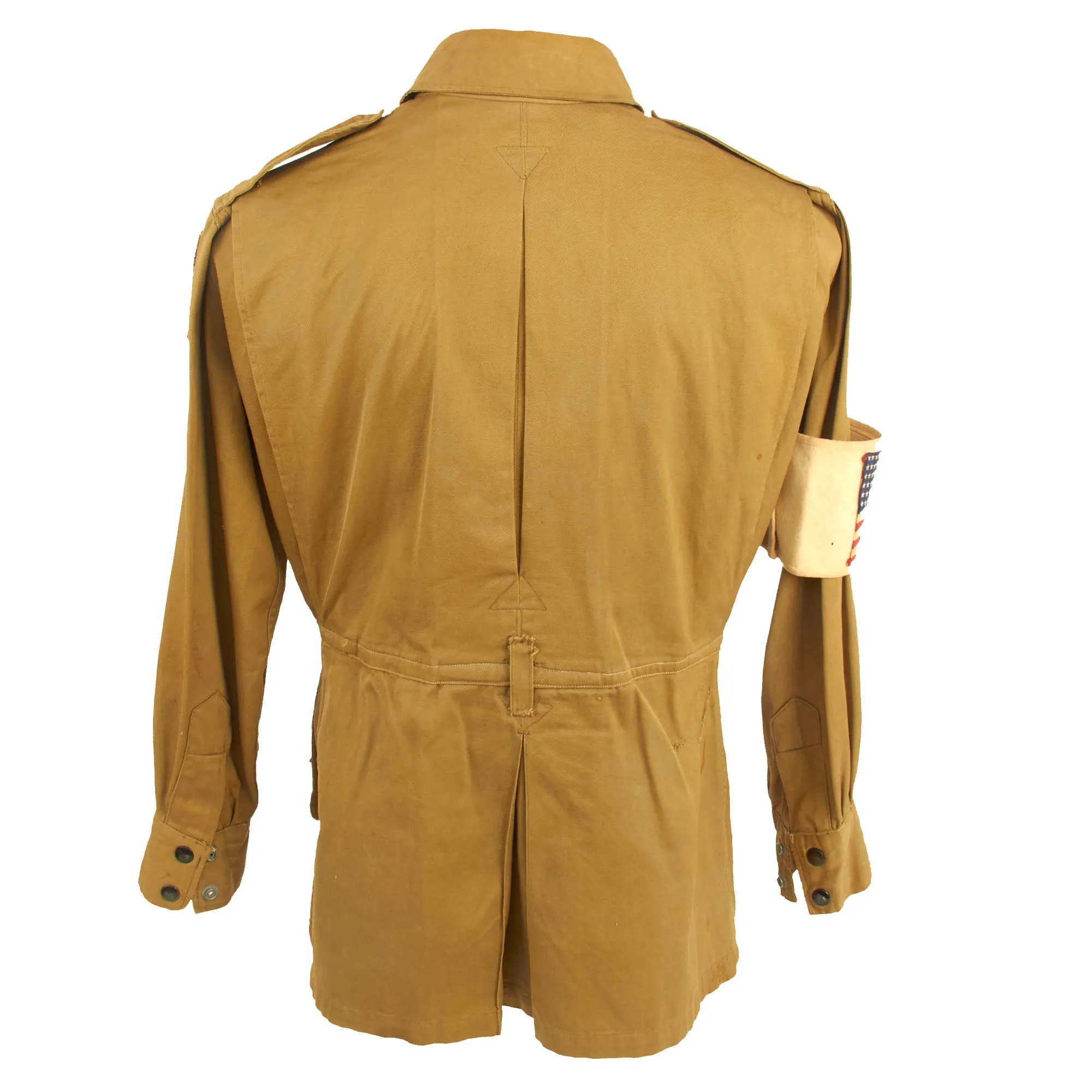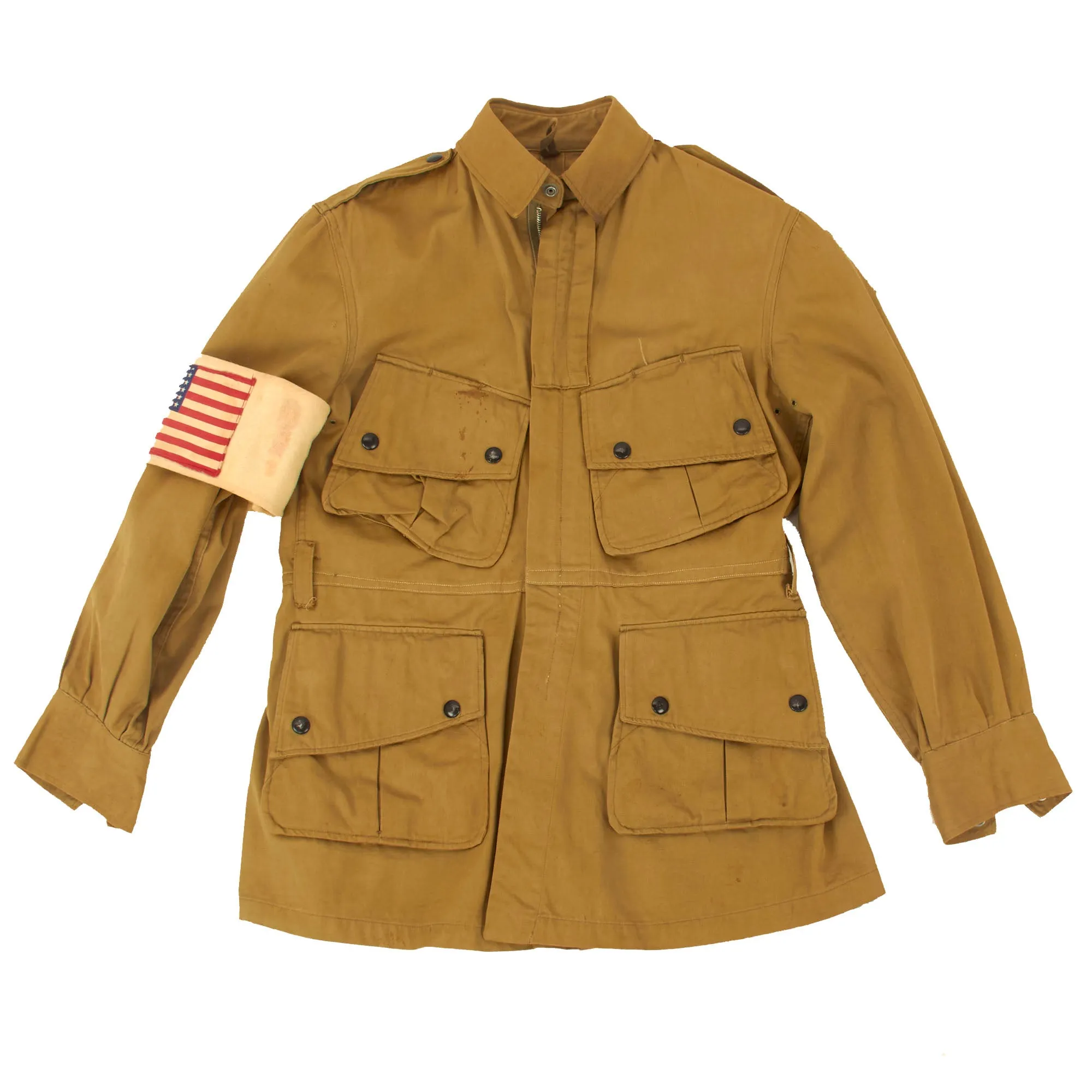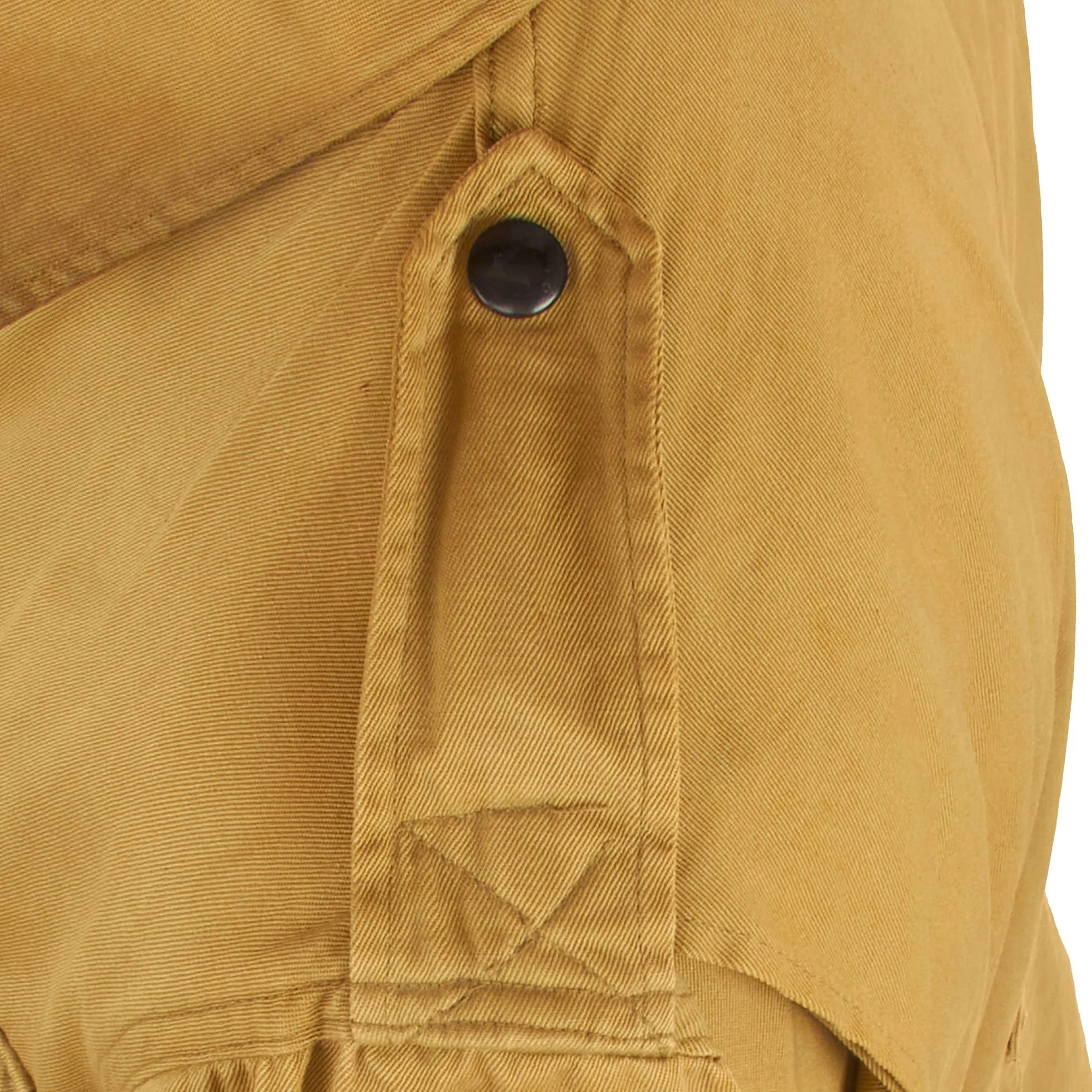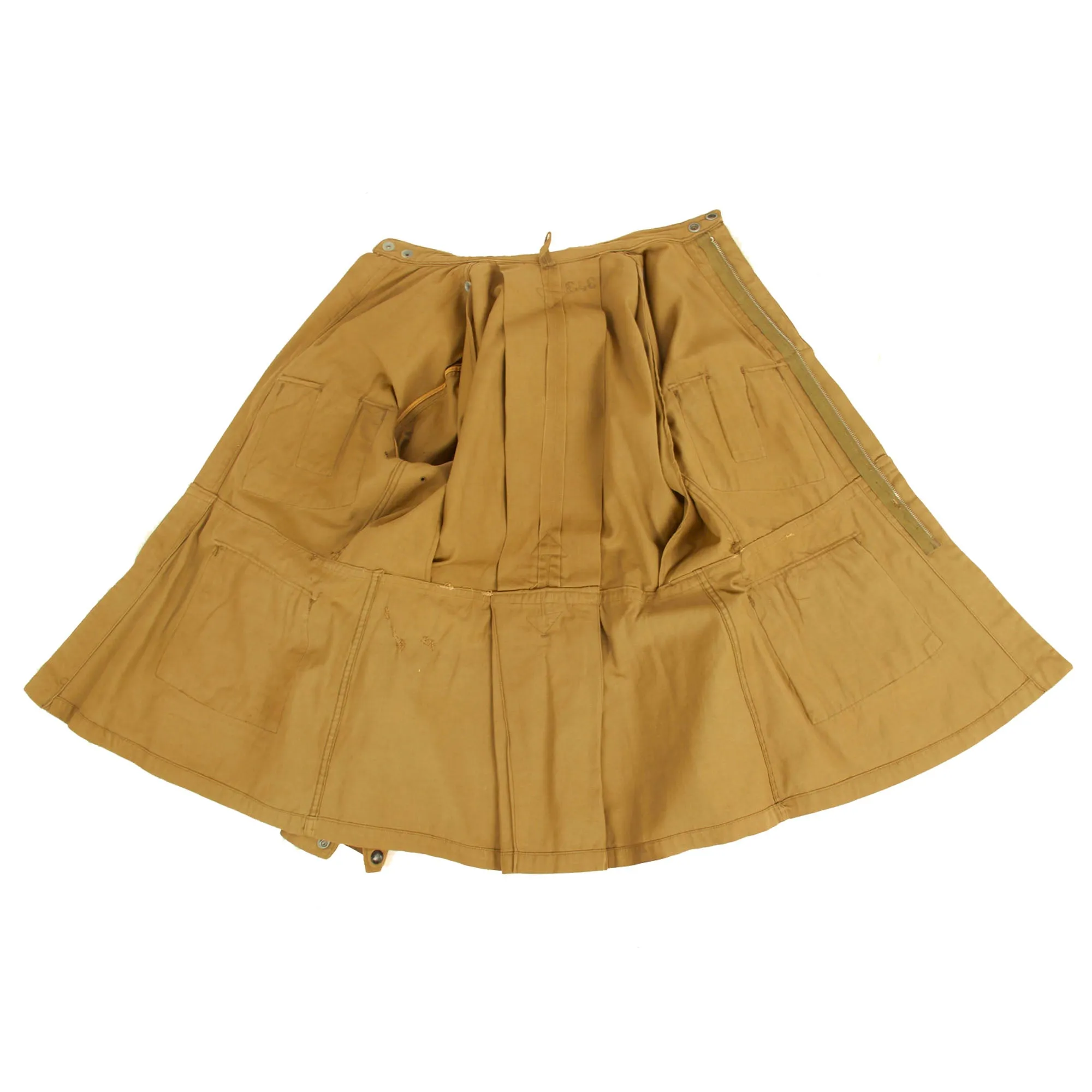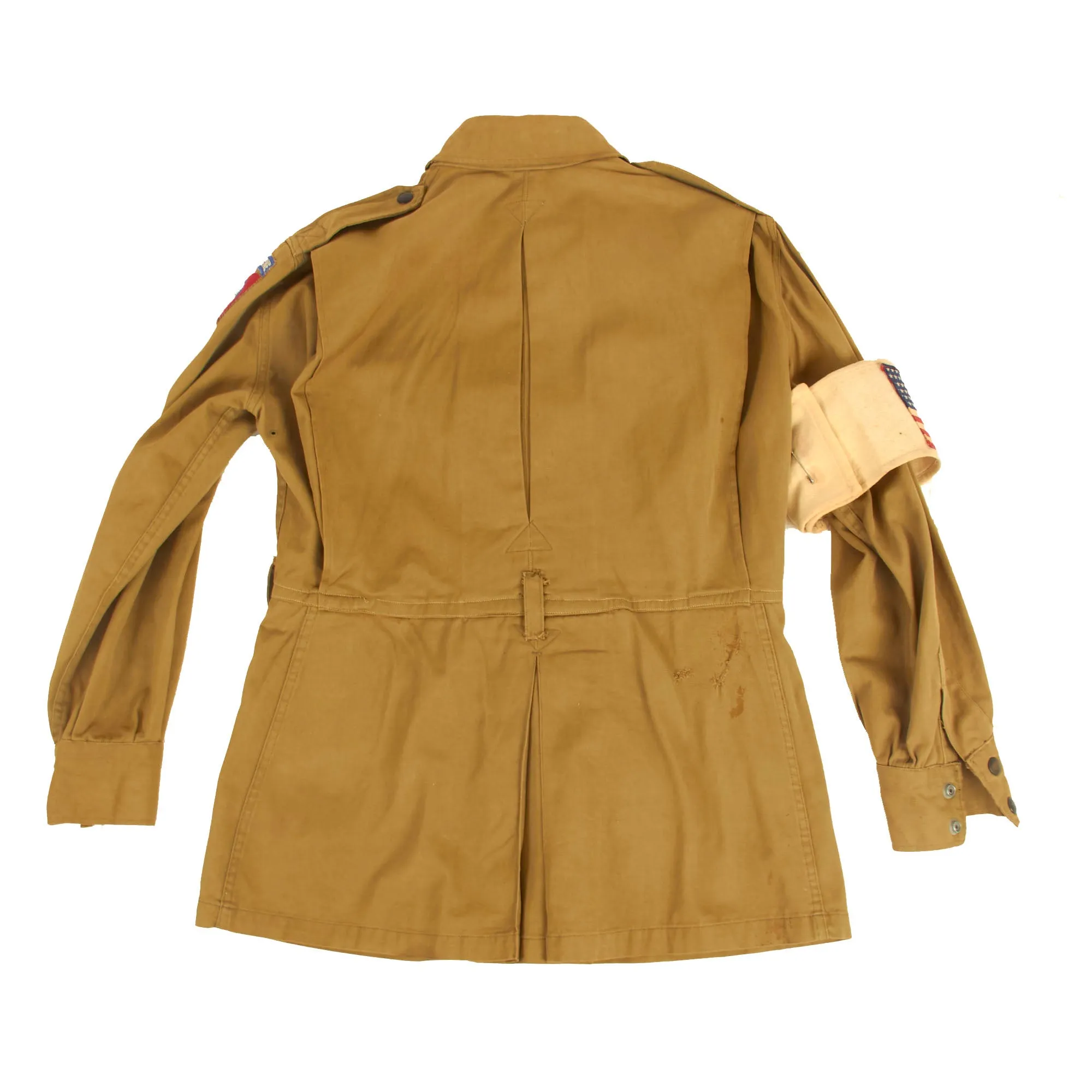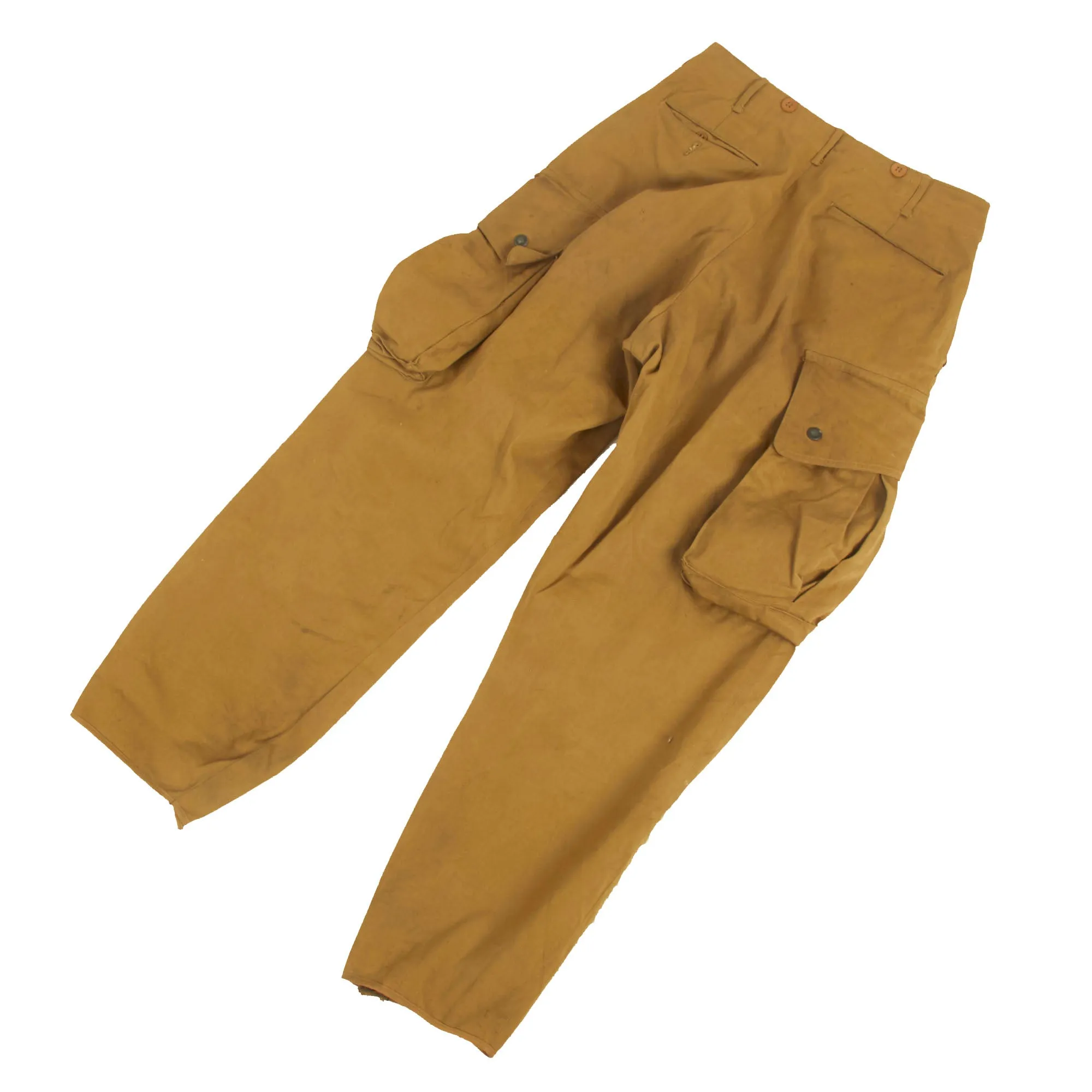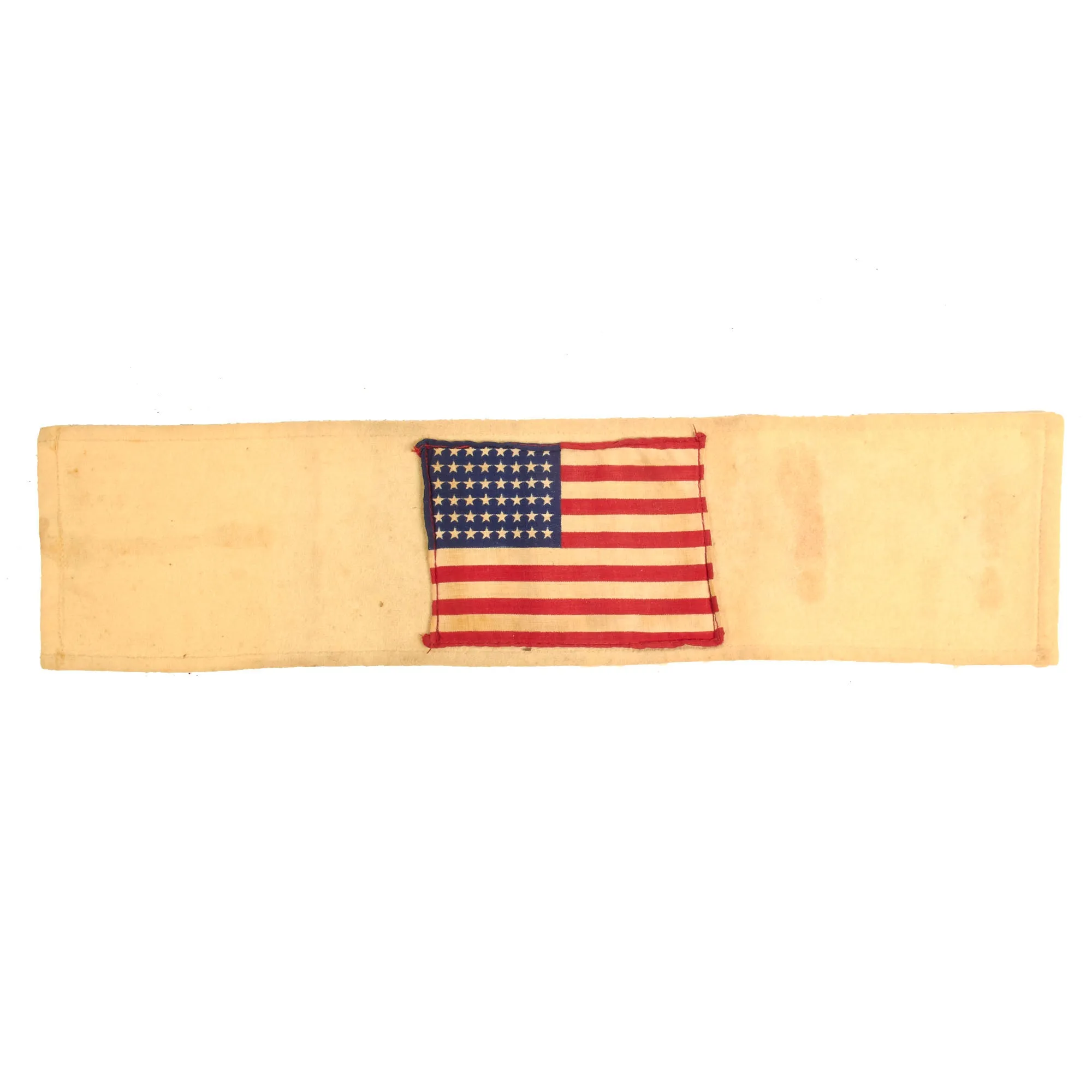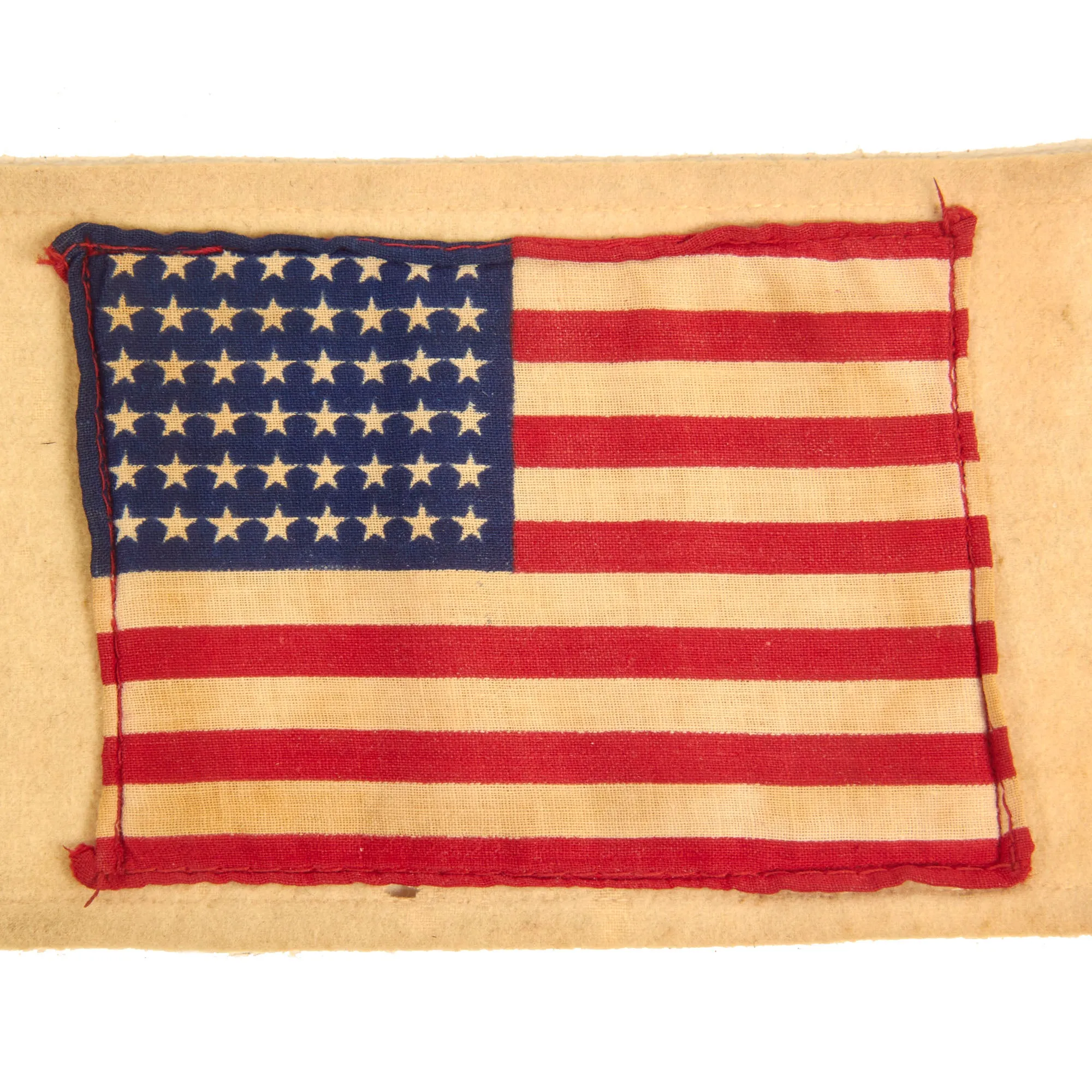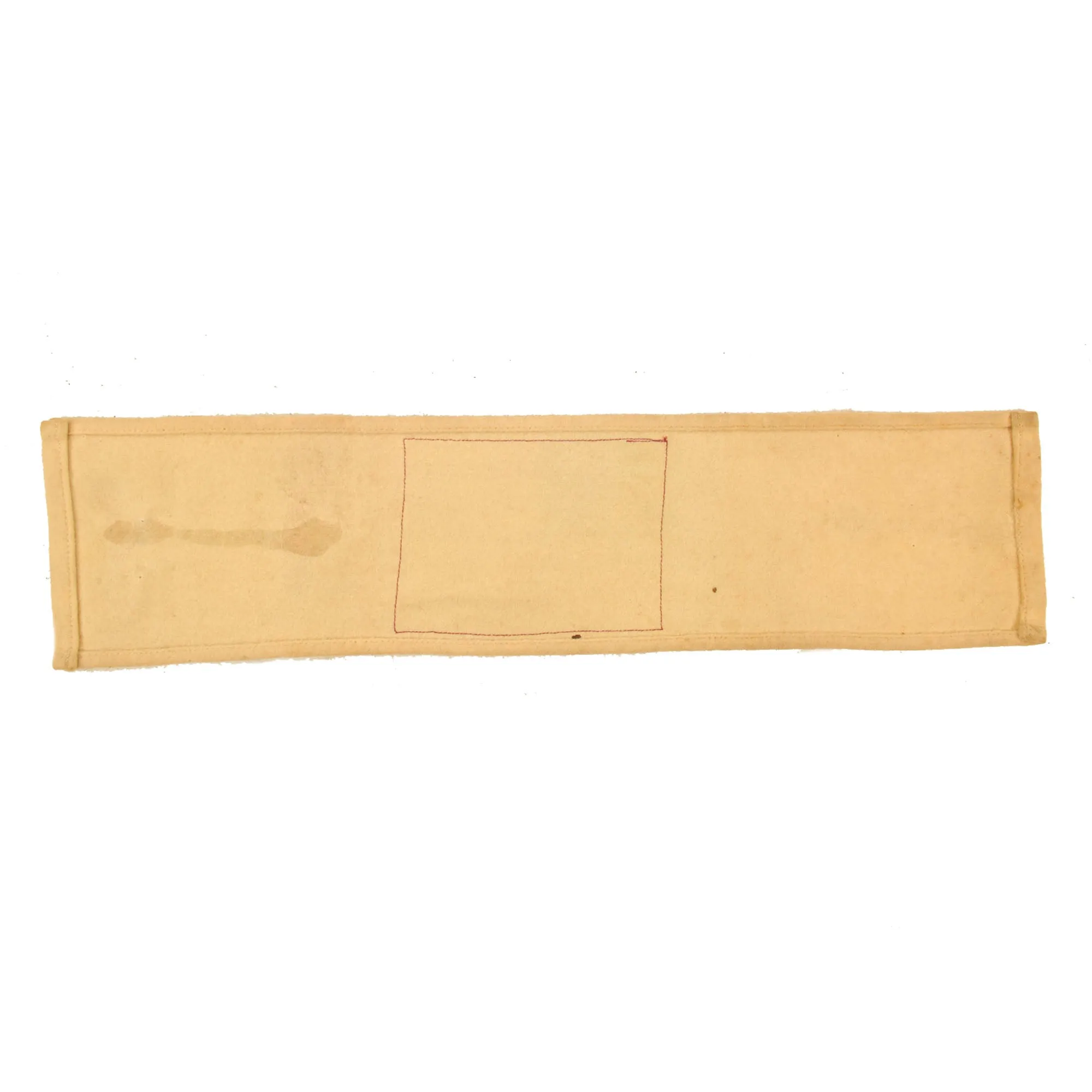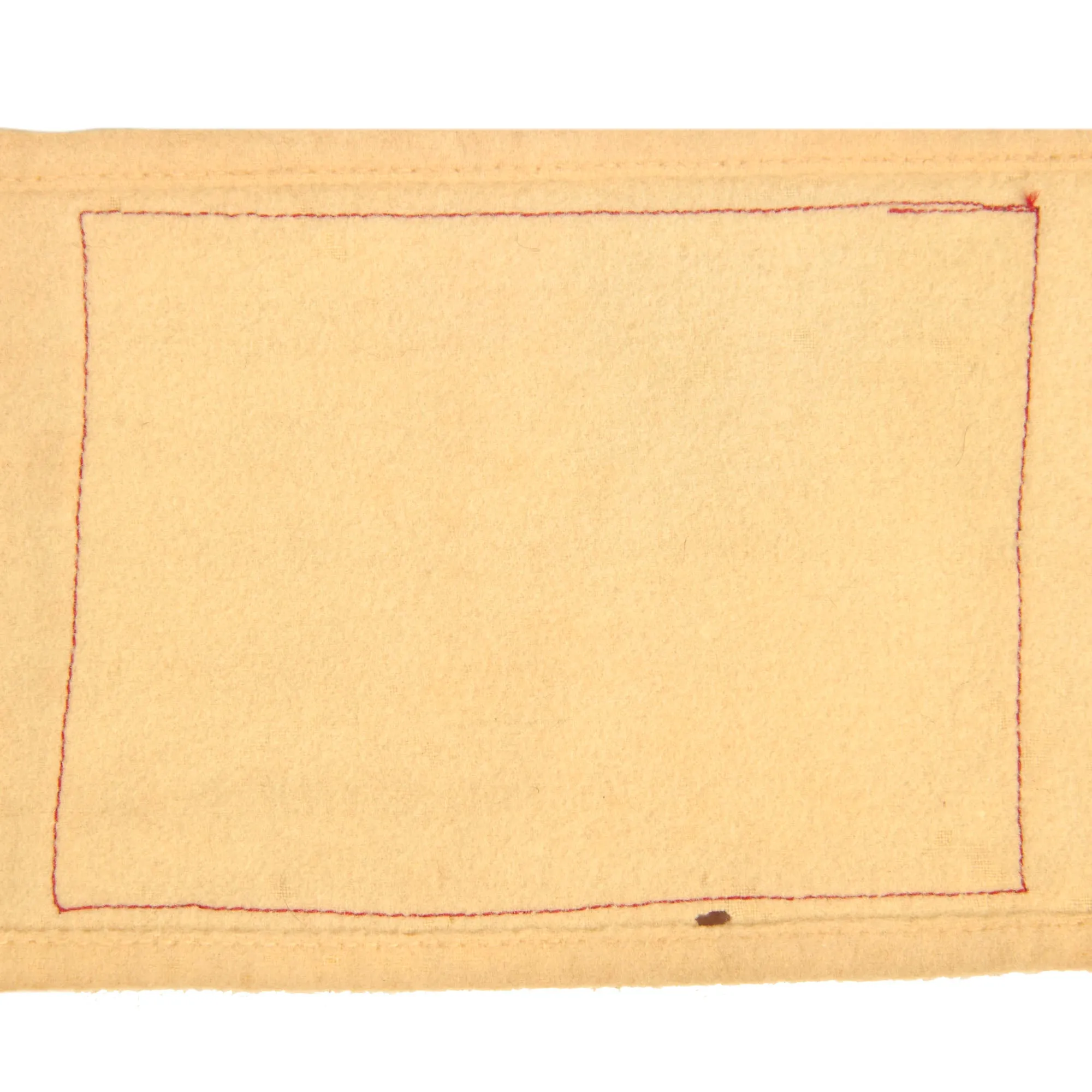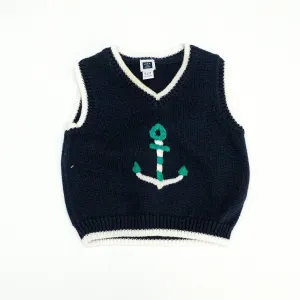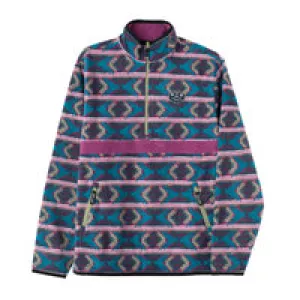Original Items: Only One Set Available. This Original M1942 Airborne Jump jacket in Olive Drab #3 offered in good, used condition. The coat consists of four front patch pockets with two button snaps on each top flap, with 2 rows on the pockets, to secure different sized items. The jacket also has the dual-zippered knife pocket located on the upper lapel which was designed to contain a switchblade pocketknife, used to cut the parachute rigging if entangled, with both zippers being period correct CONMAR brand. The the main front zipper is an original CROWN, with mostly intact original stitching, showing some period repairs on the bottom left. The top two pockets were also angled inward to make items easier to retrieve with the opposite hand.
The right sleeve has an incredible British melton wool armband with a cheesecloth American flag sewn onto it, used for Invasion purposes. This type of armband was typically used by U.S. Paratroopers, for example in North Africa (1942), during the D-Day invasion in Normandy (June 1944) and during Operation Market Garden (September 1944). The right sleeve has a beautiful, original period applied 82nd Airborne insignia with Airborne rocker.
The jacket is in good condition, with the expected stains and small pulls from service. Unfortunately the original cloth belt is no longer present but an original replacement one should be sourced with ease.
Due to the somewhat fragile nature of the uniform, the M1942 pattern was often reinforced with thicker, tougher canvas on the elbows, crotch and knees. However, this example was never reinforced, indicating early issue. The M42 was worn by Paratroops assigned to Airborne units. The M42 was eventually phased out in favor of the M1943 Uniform which was a darker green, OD #7. Despite this, various individuals chose to keep their M42s in order to show their veteran status.
The trousers are in similar condition to the jacket and are without any extensive damage. The jacket is laundry number marked W6369. We have not been able to identify the laundry number, making this a wonderful research candidate.
This is a wonderful example of a very hard to find early configuration jump jacket, in great shape.
Approximate Measurements:
Collar to shoulder: 10"
Shoulder to sleeve: 21.5”
Shoulder to shoulder: 17”
Chest width: 20"
Waist width: 18"
Hip width: 21"
Front length: 30.5"
Pants:
Waist: 30"
Inseam: 30"
Called to active duty again during World War II on 25 March 1942, the regiment formed under the command of Colonel Claudius M. Easley at Camp Claiborne, Louisiana. After initial training, the regiment was reorganized as a glider infantry unit when the 82nd Infantry Division was reorganized as the 82nd Airborne Division in August 1942, and the 325th was redesignated the 325th Glider Infantry Regiment.
After further training, the regiment deployed to North Africa under the command of Colonel Harry L. Lewis. The regiment was not committed to combat until they conducted a landing at Salerno, Italy, on 15 September 1943. It was not, however, by glider but by landing craft
After service in the Italian campaign, the regiment deployed to England and conducted further training in preparation for Operation Overlord. Conducting a glider-borne assault on 7 June 1944, the day after the initial Normandy landings, the regiment fought in Normandy for over a month, sustaining heavy casualties before being withdrawn to England. On 9 June 1944 the 325th earned its first and only Medal of Honor of the war, belonging to Private First Class Charles N. DeGlopper.
Committed to another glider-borne assault in September 1944, the regiment fought in Holland as part of Operation Market Garden and later saw service in the Battle of the Bulge under Colonel Charles Billingslea.




